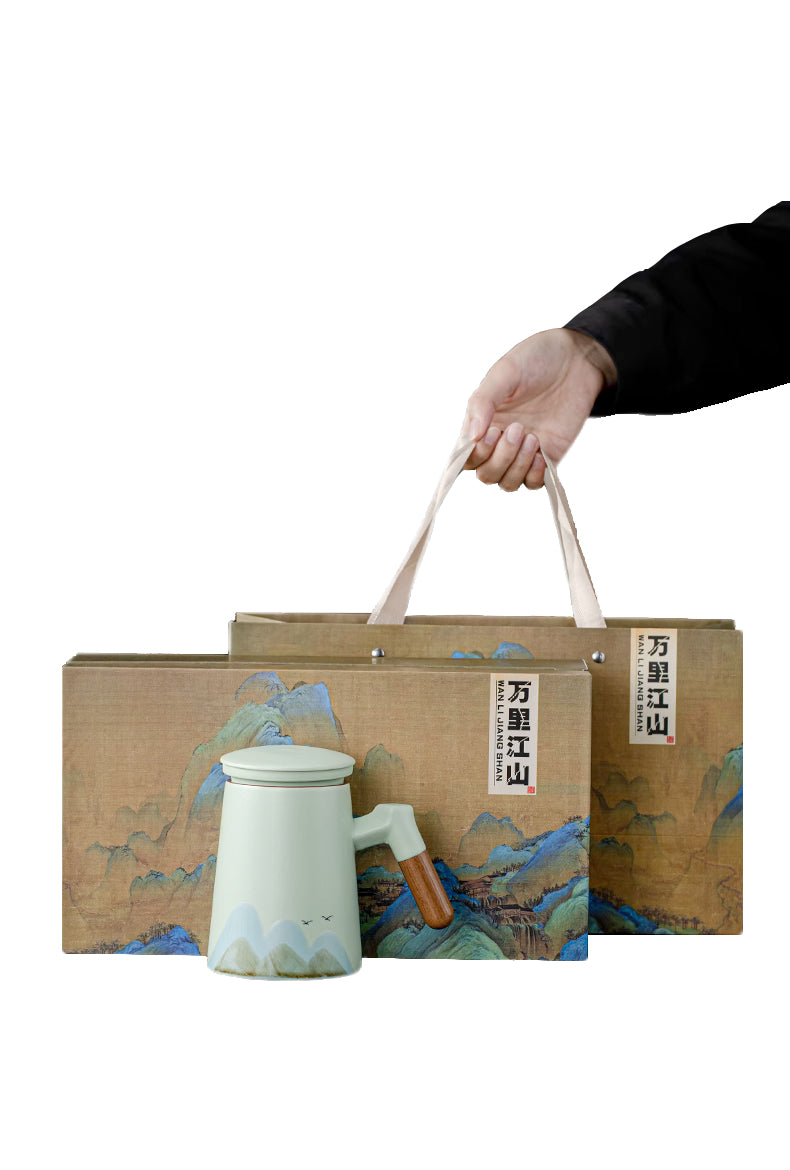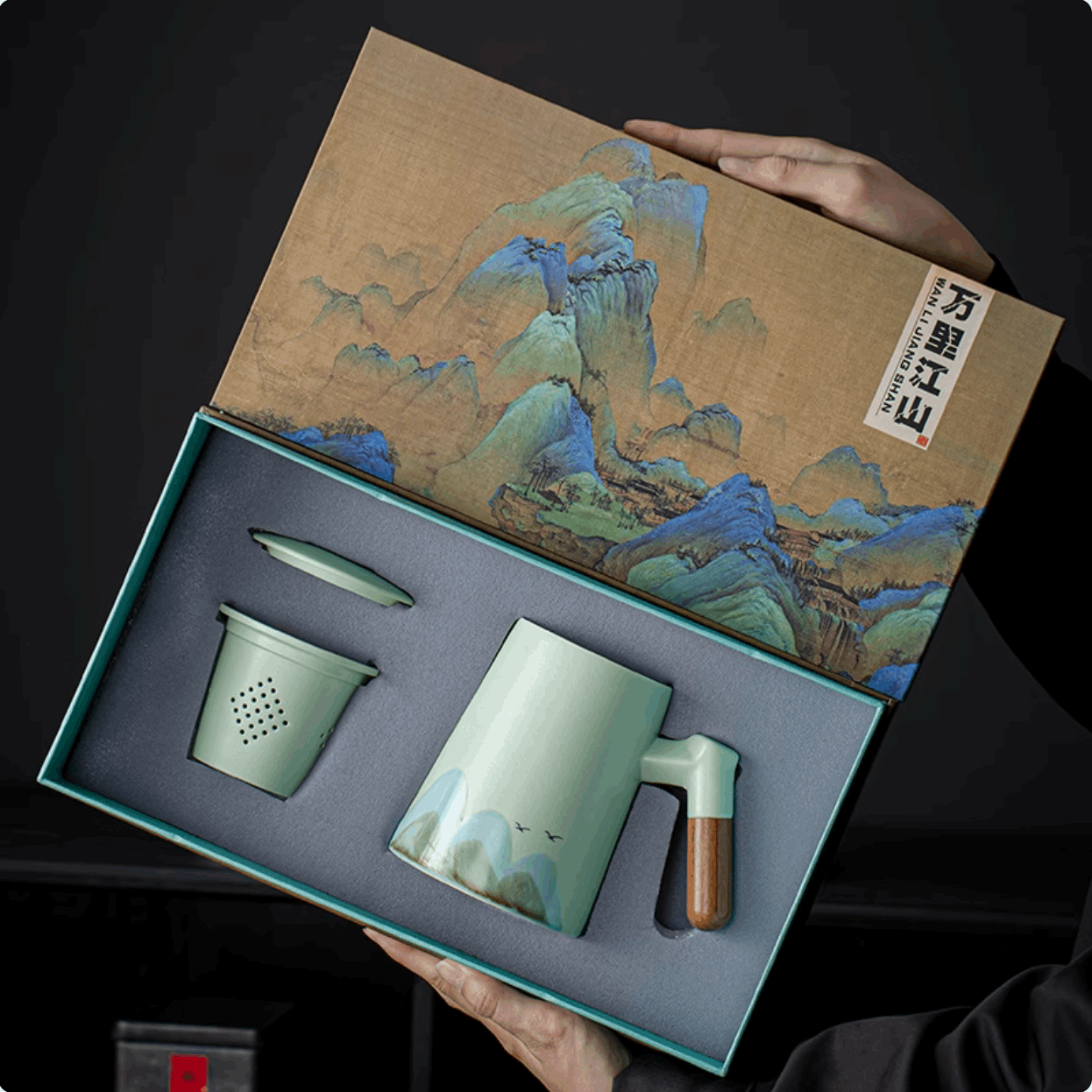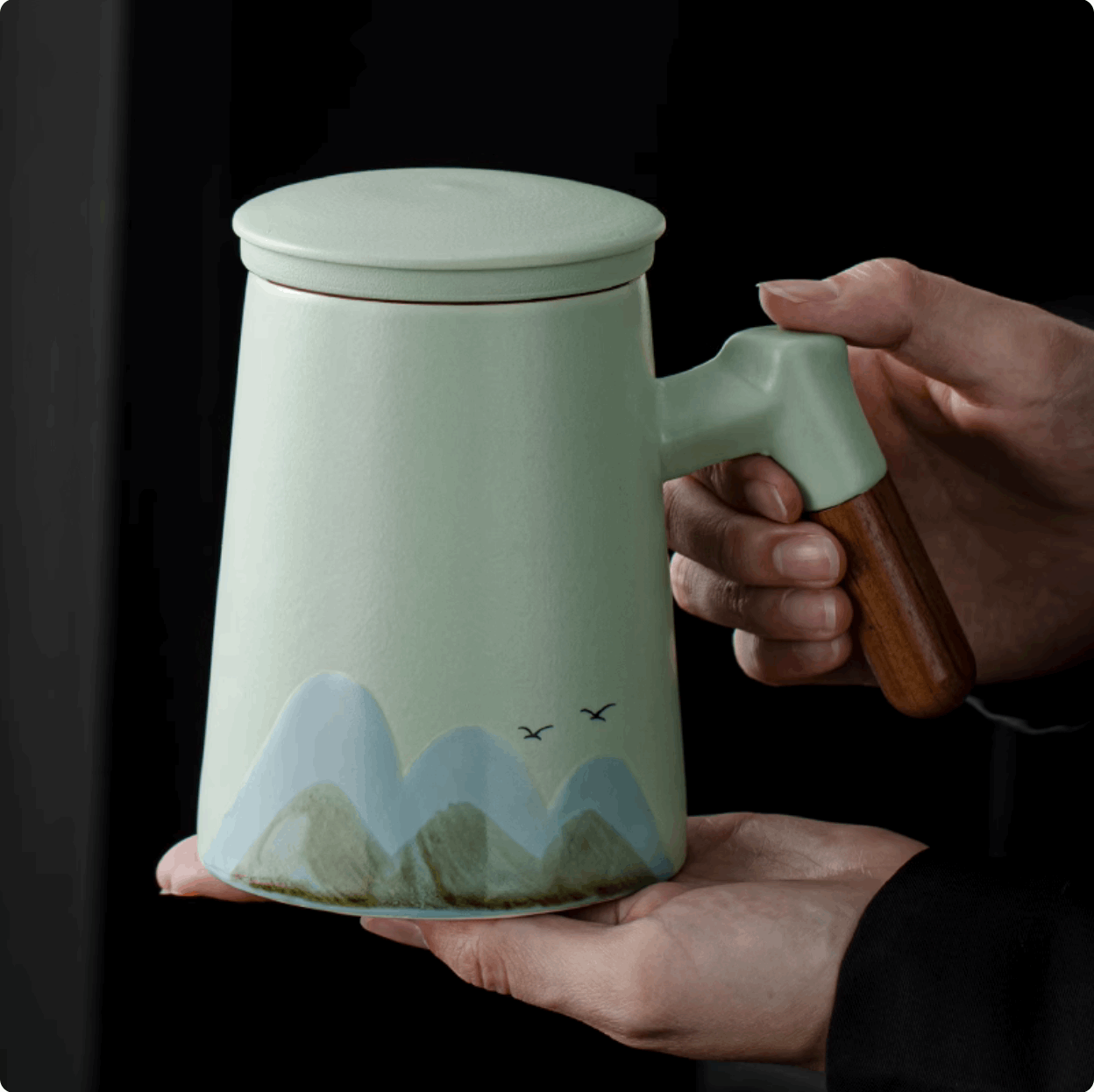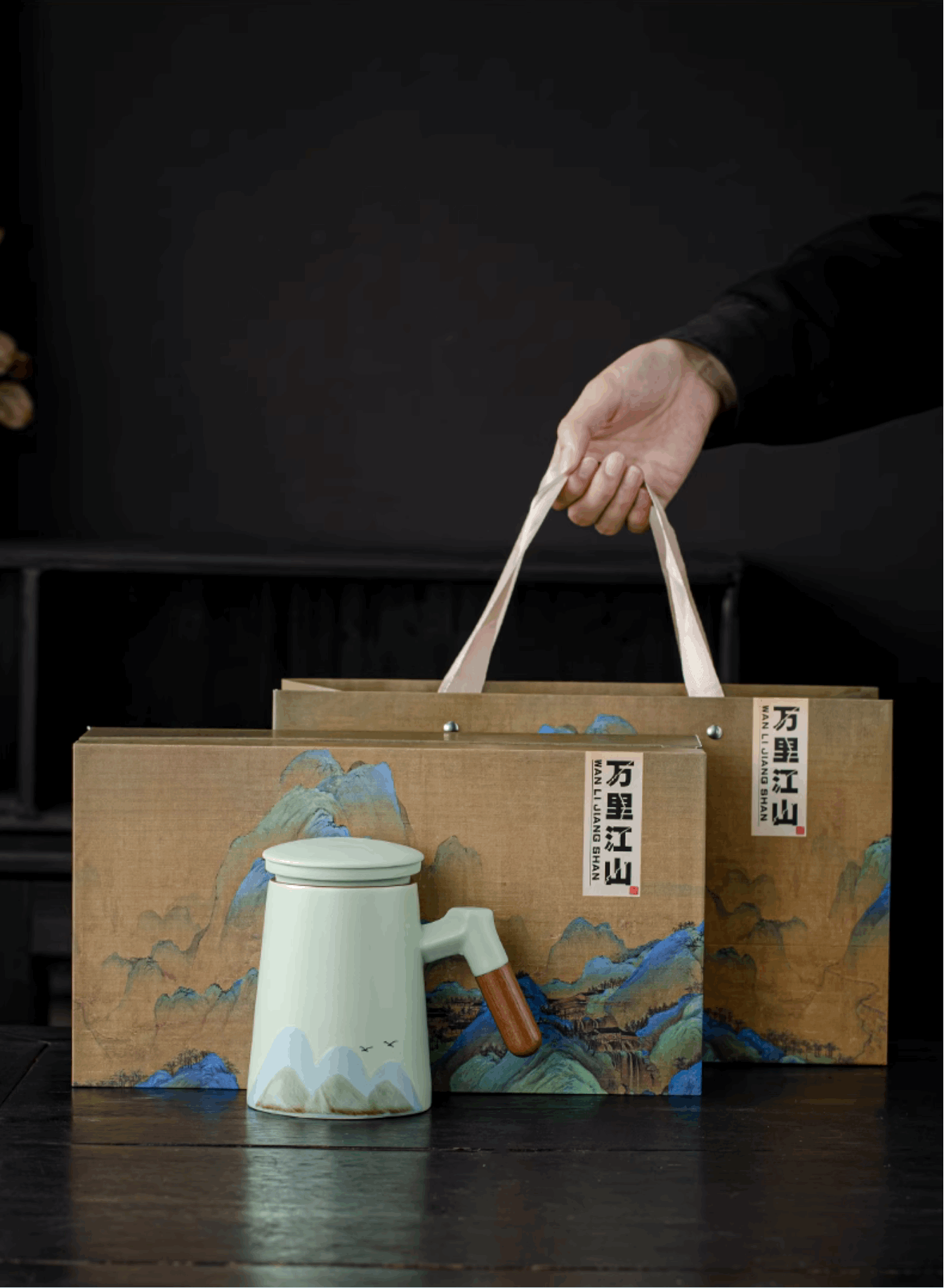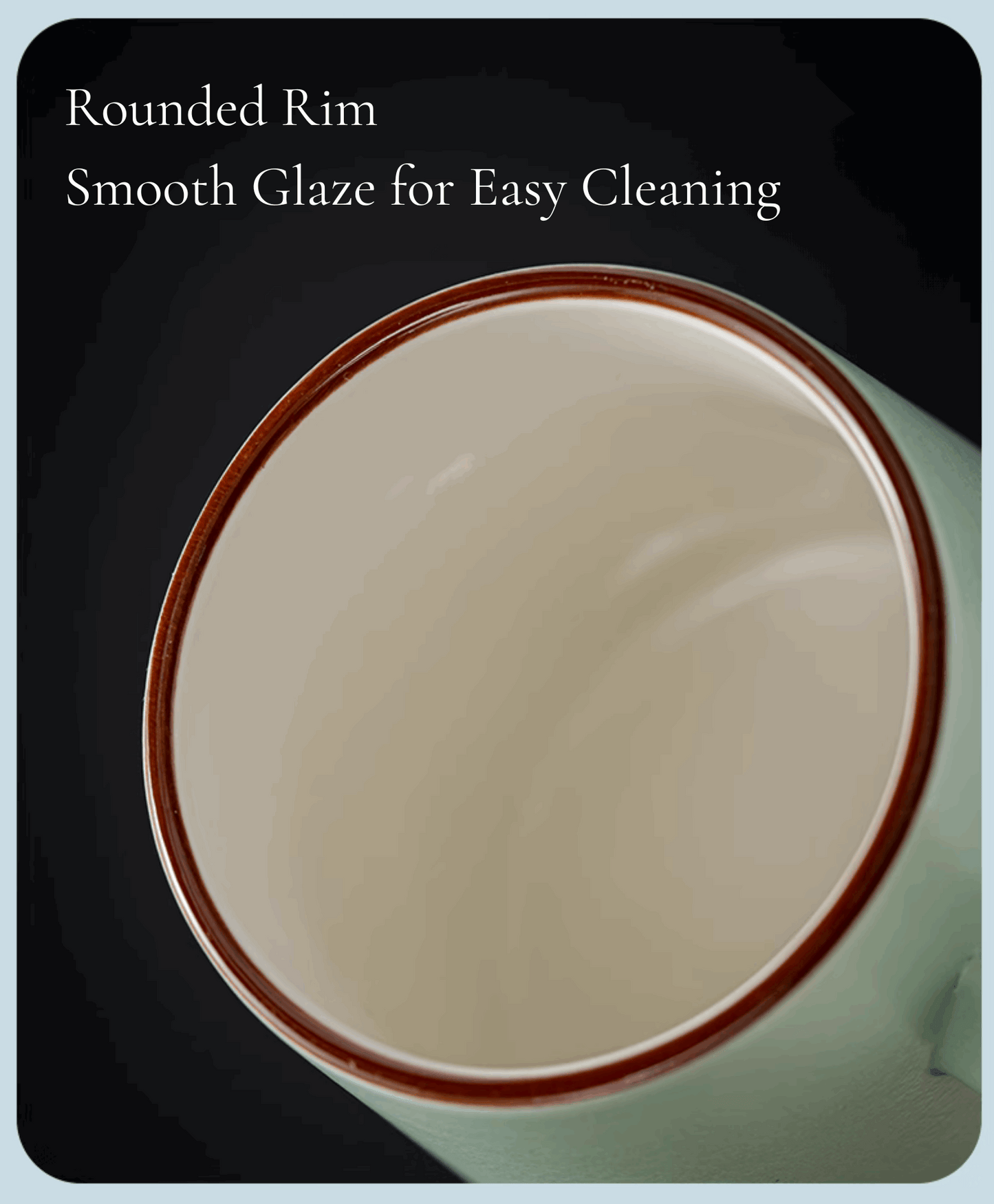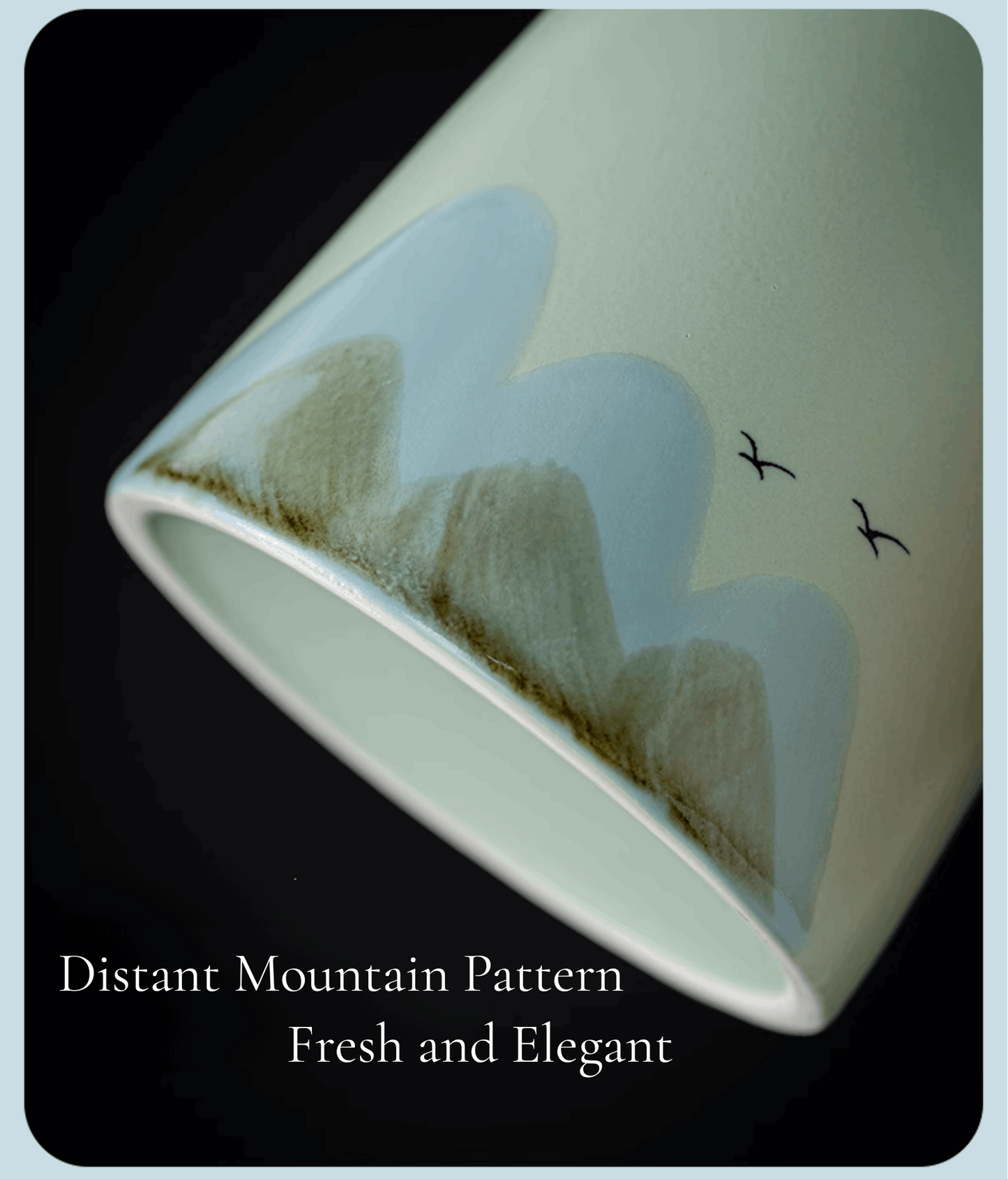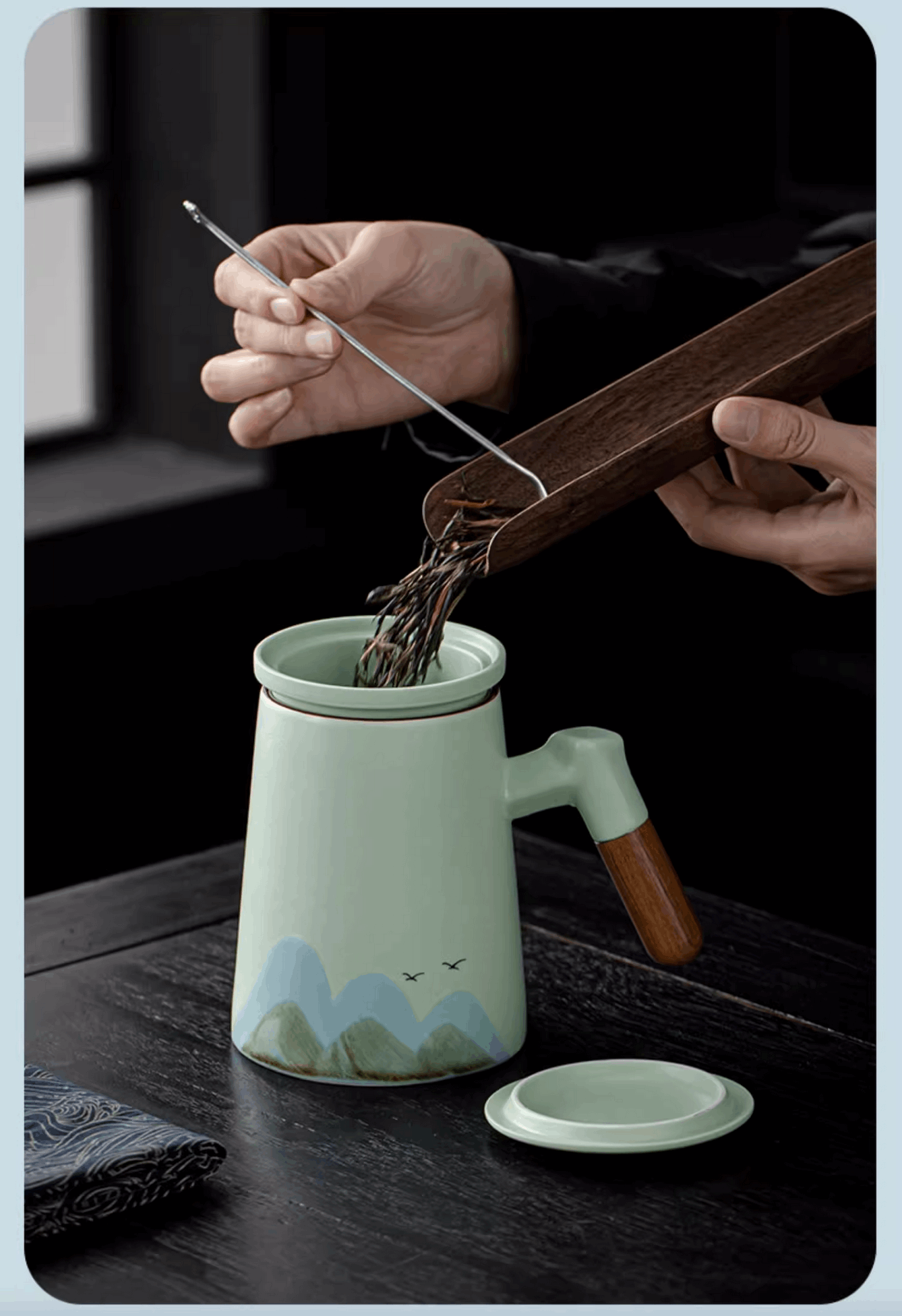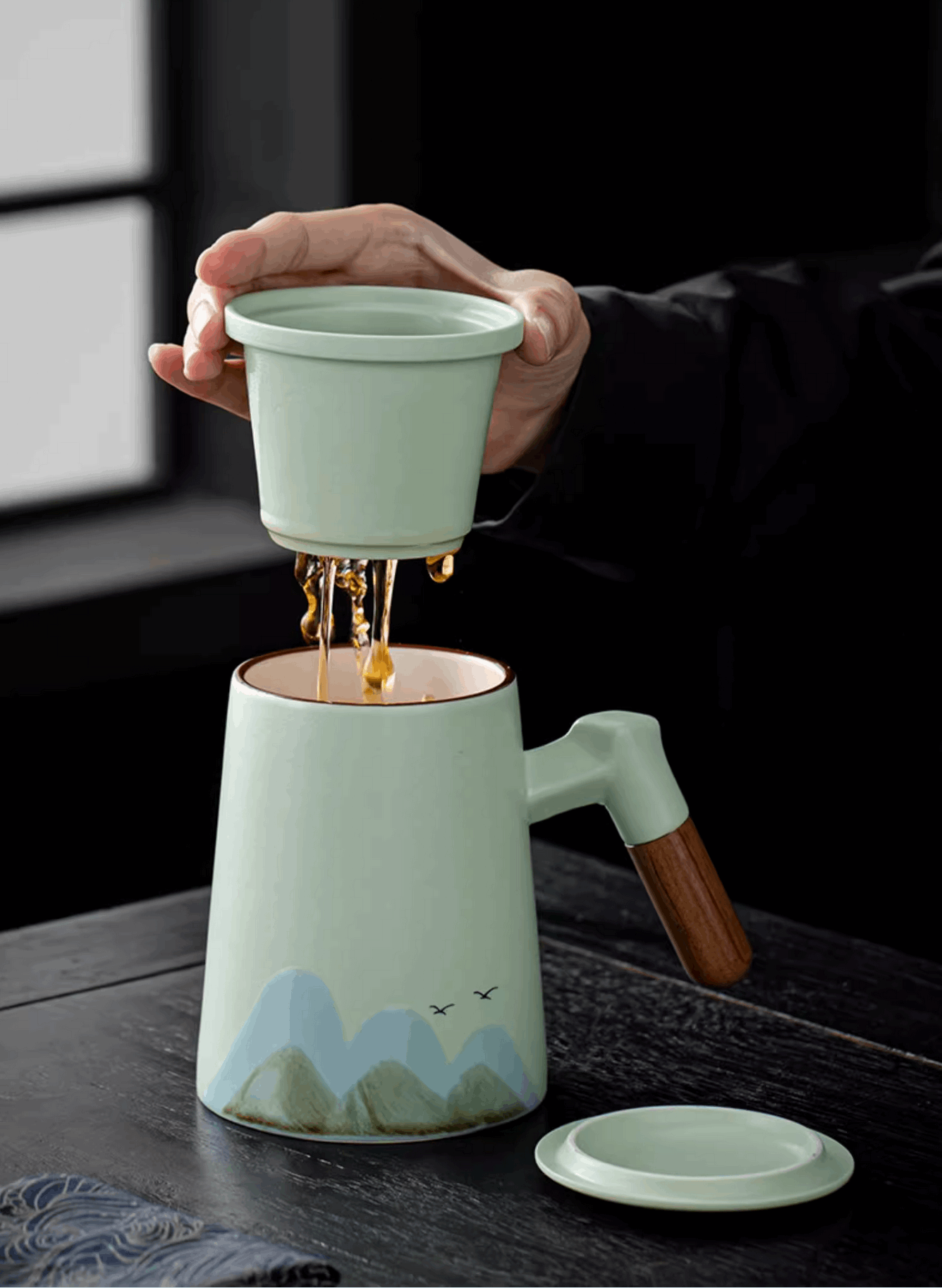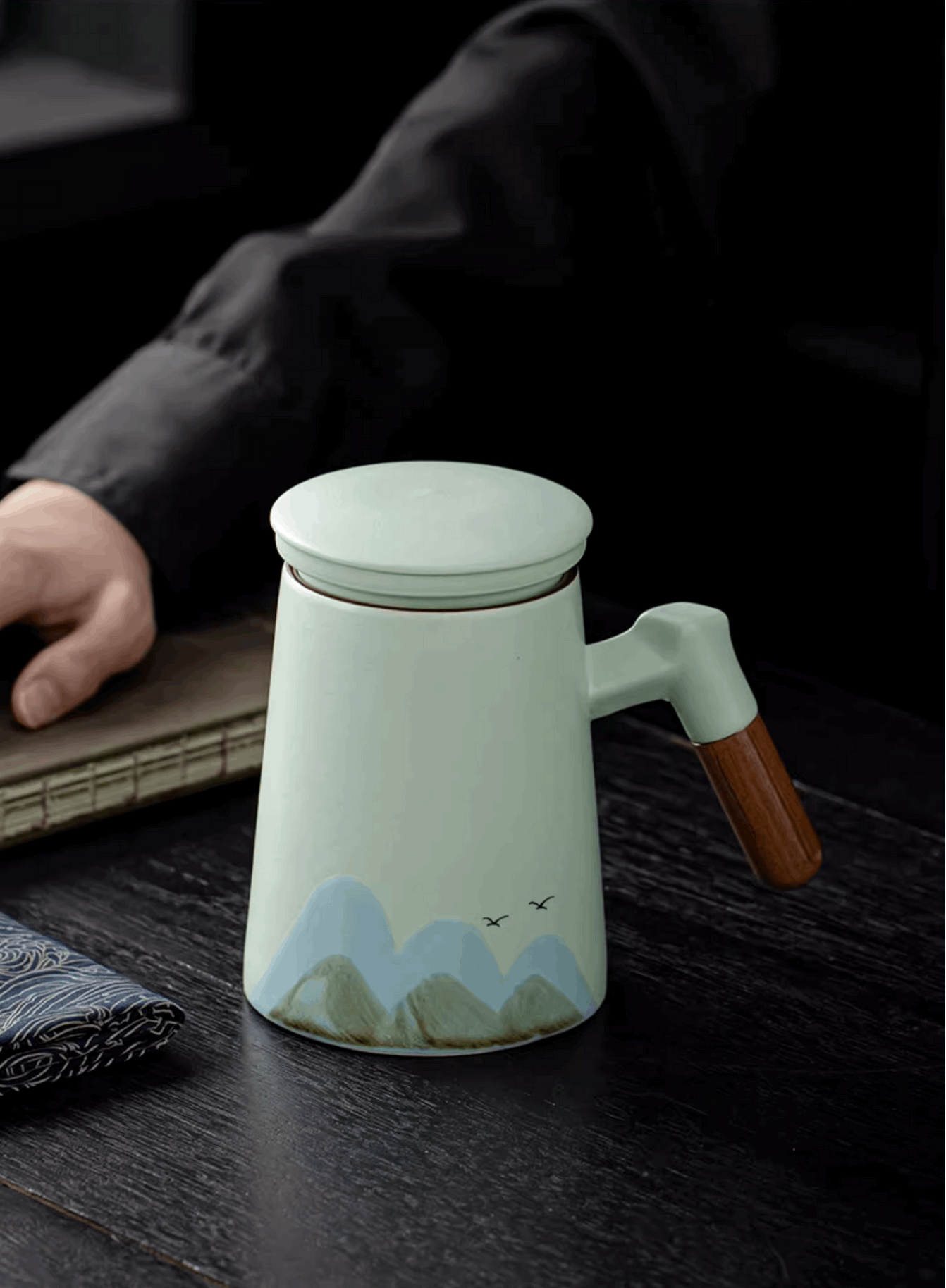Tea Sets | The Han Aesthetic
Tea Sets — Celebrating Tradition in Every Sip
The tea set is the heart of many Chinese homes — a symbol of hospitality, mindfulness, and artistry. At TheHanAesthetic, our tea sets are crafted with respect for this deep cultural significance. Combining classic forms, delicate porcelain, and subtle modern touches, our collections invite you to slow down, share a moment, and experience the timeless ritual of tea. Every cup poured is a connection to centuries of tradition and the enduring beauty of the Chinese aesthetic.
The Origins of the Tea Brewing Tradition
Chinese tea culture traces its roots back over 4,000 years, blossoming fully during the Tang Dynasty (618–907 CE) when tea drinking became a refined ritual. It was during the Song Dynasty (960–1279 CE) that the art of brewing tea flourished, transforming simple leaves and water into a mindful practice symbolizing respect, patience, and balance.
The act of 泡茶 is more than boiling water; it is a choreography of precise movements, attentive listening to the tea’s aroma, and appreciation of each moment — a harmony between nature, the tea maker, and the guests.

The Essential Tea Equipment and Their Roles
A traditional Chinese tea set includes carefully designed pieces that each play a vital role in brewing and enjoying tea:
Teapot (壶, hú): Often made from Yixing clay or porcelain, the teapot holds the tea leaves and helps extract their flavor with gentle precision. Yixing teapots are prized for their porous quality that enhances tea taste over time.
Tea Cups (杯, bēi): Small and delicate, these cups encourage sipping slowly, savoring the essence and warmth of the tea.
Tea Tray (茶盘, chá pán): Used to catch spills and provide a beautiful space for the tea ceremony.
Fairness Pitcher (公道杯, gōng dào bēi): Ensures the tea is poured evenly for every guest, reflecting fairness and respect.
Tea Tools (茶具, chá jù): Tweezers, scoopers, and brushes used to handle tea leaves and keep the brewing area tidy — highlighting attention to detail.
What 泡茶 Symbolizes in Chinese Culture
Brewing tea in this ritualized way symbolizes much more than hospitality. It reflects key Chinese values:
Harmony (和, hé): The perfect balance between water temperature, tea leaves, and brewing time creates harmony — a metaphor for balance in life.
Respect (敬, jìng): Serving tea is an expression of respect for guests, elders, and traditions. It is a way to honor relationships.
Patience (耐心, nài xīn): The slow, deliberate process cultivates patience and mindfulness, teaching the value of presence.
Connection (联系, lián xì): Sharing tea is a social ritual that strengthens bonds, invites conversation, and creates shared memories.

Tea Brewing as an Art Form and Cultural Heritage
The art of 泡茶 has inspired poets, philosophers, and artists throughout Chinese history. It is closely connected to Daoist and Confucian ideals, emphasizing naturalness, simplicity, and reverence for life’s small details.
Tea masters dedicate years to mastering the nuances of tea — from choosing the right water to understanding how heat and timing affect flavor. Their craft preserves ancient wisdom and transforms it into an experience that transcends time.
Bringing the Spirit of 泡茶 Into Your Home
At TheHanAesthetic, we honor this sacred tradition by offering tea sets designed to celebrate both function and beauty. Our pieces blend classic craftsmanship with contemporary elegance, inviting you to slow down, engage your senses, and experience the soulful art of tea brewing.
Each cup of tea becomes a moment to reflect, connect, and appreciate — a daily ritual rooted in thousands of years of Chinese culture.
Conclusion
Tea sets are a timeless expression of home design that brings Chinese culture into daily life. Through refined home deco and authentic Chinese style, each set embodies the essence of tradition, connection, and mindfulness. Designed with aesthetic design principles, these tea sets transform simple moments into meaningful rituals, allowing you to create a space where beauty, culture, and home truly come together.


